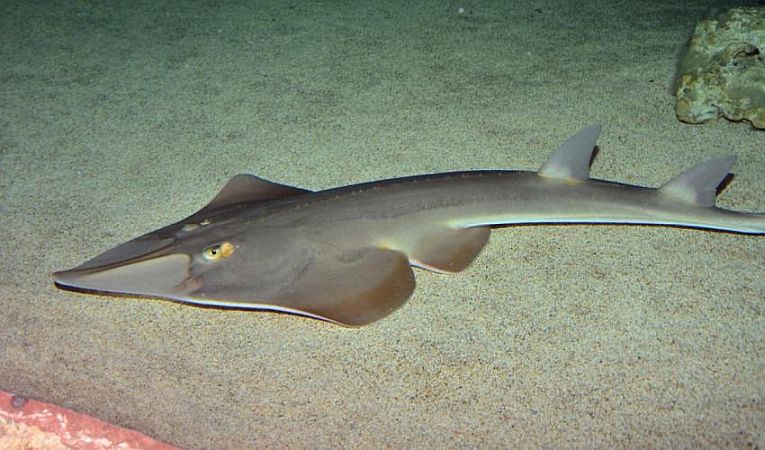Guitarfish image; Credit: © Johan Fredriksson
With the help of the IUCN Shark Specialist Group, the IUCN Global Species Programme and several Mediterranean experts, the Mediterranean Red List Initiative have undertaken a study of sharks in the Sea in their 2016 Regional Assessment.
The conclusion of this document, taken from the Brochure is More than half of the sharks, rays and chimaeras native to the Mediterranean are at risk of extinction.
Like many enclosed seas, the Med has been losing many of its fish stocks due to over-fishing, but the Mediterranean's history has been more lengthy and continuously-depleting than any. The NW nations, especially Italy and Spain with their large coastlines, are the greatest offenders. Local extinctions have been common over the last 50 years, with the loss of 13 species. Bycatch (very valuable), combined with intensification of fishing is responsible for these shark extinctions.
While regional policies are quite explicit in explaining severe restrictions, governmental action is lacking. They do not monitor catch, collect enough data or regulate fishing gear (such as illegal but intensive driftnetting) or quotas, as noted by Nick Dulvy of the IUCN Shark Specialist Group, from Simon Fraser University, Vancouver. For the last 10 years, they have failed to improve the status of any species.
Down to species level. The bottom-living angel sharks are the most threatened, with sawfish and guitarfish close behind. Despite finning bans and capture and sale bans from 2012 onwards (as listed in the Barcelona Convention) and bycatch limitations before that, prohibition of the catching of certain species has never been implemented. These governments need to work on the same stretches of water in many cases, so coordinated action would be expected.
When we expect governments to begin acting on carbon emissions worldwide, it is hard to take this inaction among established western nations, who can't even cooperate on their own marine policy. We treasure our seas, from the Caribbean and the South China Sea, to the Sea of the ancient Aeneas and Odysseus. Obviously, there are some who don't get the point and would happily eat the last fish in their little bit of ocean.
Previous stories have noticed the demise of the Mediterranean, as illustrated by this article 2 years ago, showing what UAB thinks about its neighbouring Sea!










